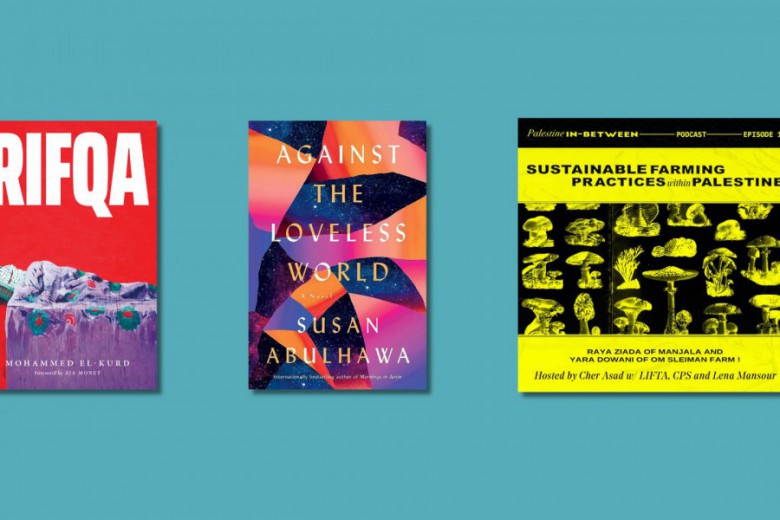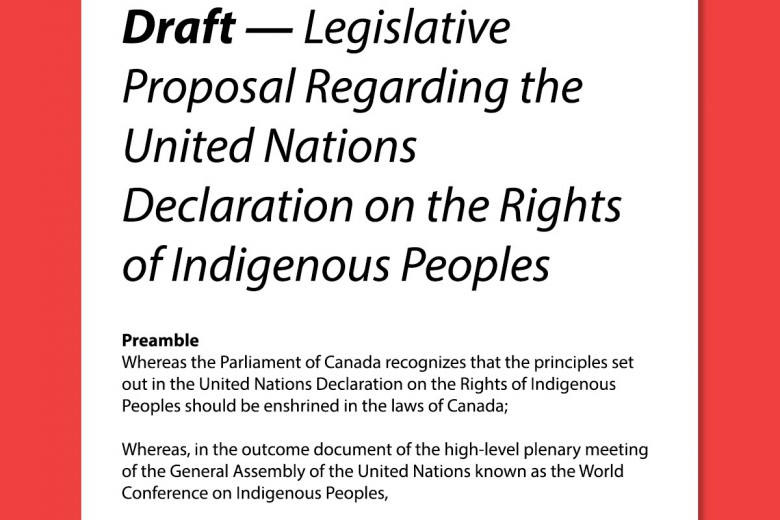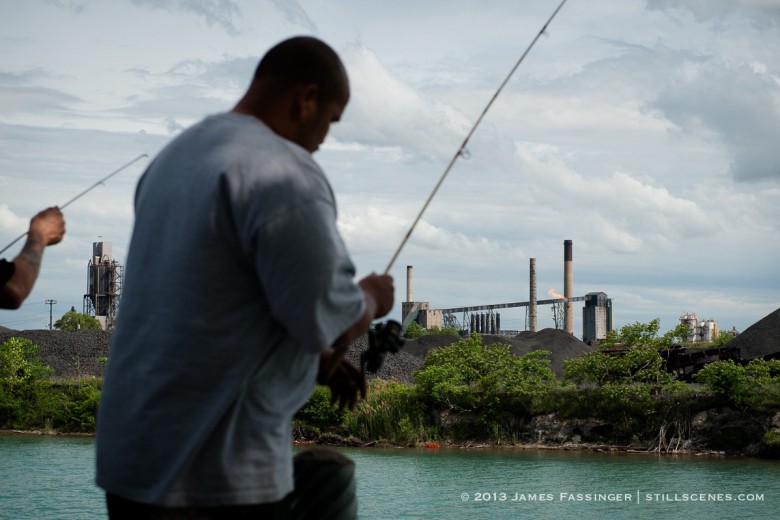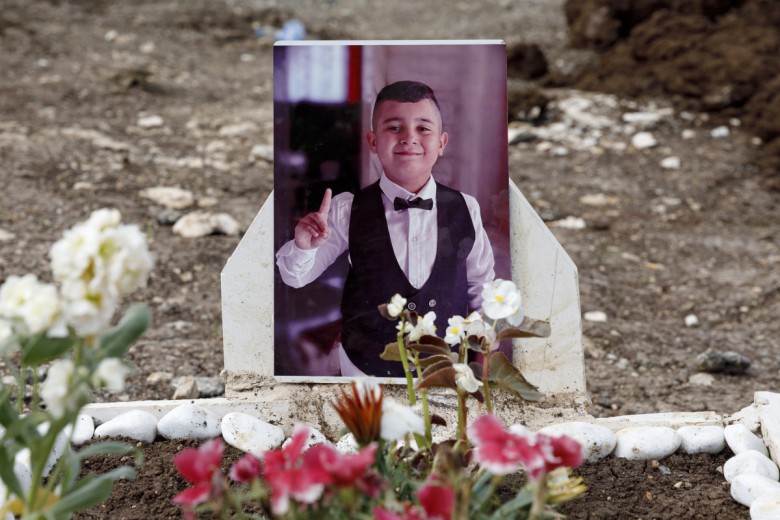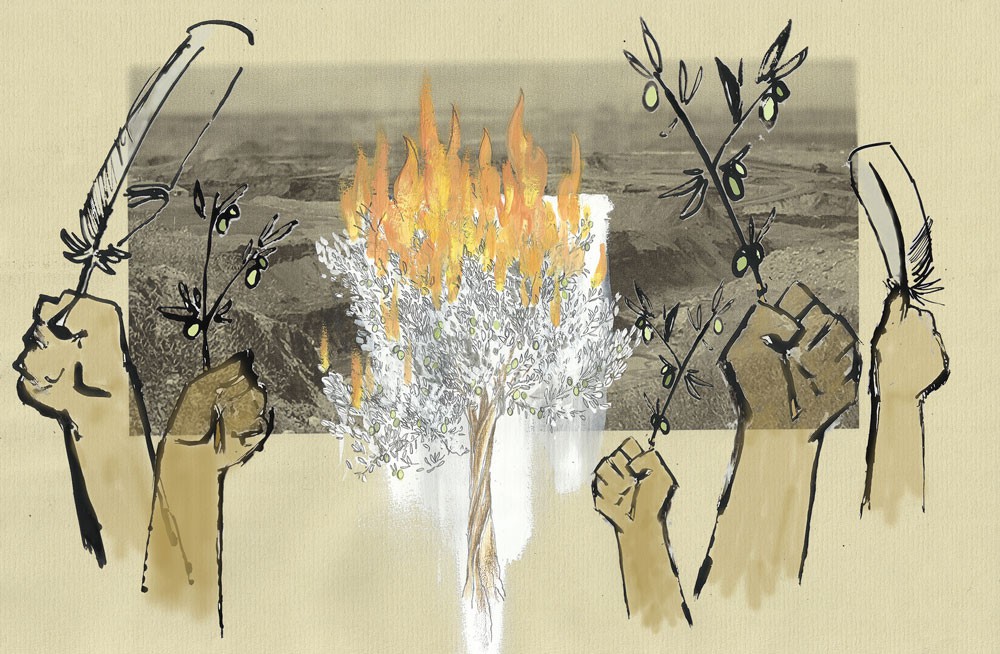
“Palestinians have always been and continue to be oppressed,” says Palestinian-born Canadian Yafa Jarrar. “But in my lifetime, I have not witnessed a more intense collective form of destruction and killing of my people.”
Jarrar is referring to Israel’s war on the people of occupied Gaza in the summer of 2014. Launched on July 8, Israel’s military attack lasted eight weeks and killed over 2,100 people, including at least 1,400 civilians and more than 500 children. More than 100,000 people were left homeless and displaced. Gaza was bombarded with more than 18,000 tonnes of explosives. Hospitals and United Nations schools designated as refugee shelters were targeted before a ceasefire proposal was finally agreed upon on August 26.
During this period, those of us active in the Palestinian solidarity movement in Canada knew that amid our horror, we needed to seize the moment. The one-sided nature of the carnage was impossible for even the mainstream media to avoid reporting, and the dominant myths about the Middle East’s “only democracy” were breaking down. People who had never been involved before were having conversations, asking questions, and looking for ways to take action. Many of us intensified long-standing campaigns or started new ones, holding rallies and educational events across North America. The ongoing Boycott, Divestment, and Sanctions (BDS) movement targeting Israel had several victories, such as forcing the Israeli shipping company Zim Integrated to cancel all shipments to the port of Oakland, California following an intense Block the Boat campaign by area organizers.
After the ceasefire was signed, stories about Palestine again faded from the headlines and out of sight. But the violence didn’t end with the ceasefire. The economic siege of Gaza continues, Israeli settlements on Palestinian land are ever-expanding, and the illegal separation wall, checkpoints, and apartheid roadways continue to imprison Palestinians. The longest running military occupation in modern times continues just as it had before the bombardment.
So how are activists in Canada to harness the momentum and consciousness generated last summer to continue to build the movement for a free Palestine? I spoke with Palestinian solidarity organizers and supporters from across Canada to learn how we can best move forward.
Channelling rage
Throughout the summer, major demonstrations across Canada showed that people were willing to take action for Palestine, and not just in Toronto, Montreal, and Vancouver. Ala’a Hamdan, a Palestinian-Canadian organizer based in Calgary, says that the turnout in that city was “the biggest we’ve ever seen, even arguably the best turnout Calgary has seen for any social justice or human rights issue.” In Saskatoon, I saw over three hundred people attend one of our rallies in July – a major number for that city.
These mobilizations contribute to Israel’s increasing ideological isolation. Vancouver organizer Aiyanas Ormond recounts how there was no substantial Zionist backlash to the Vancouver rallies, saying “the veil has been lifted a bit.”
The problem is what Emily Eaton, a longtime organizer in Regina, describes as the “swinging pendulum”: the public is supportive and vocal about the issue during flare-ups of graphic violence, but the movement loses momentum once the spectacle subsides. For this reason, many of the organizers I spoke with felt that the events of last summer were not a turning point for the movement. Instead, they are simply motivation to keep working. “I just push that much harder,” says Bob Lovelace, a retired chief of the Ardoch Algonquin First Nation in Ontario who has worked on Palestinian solidarity and decolonization for many years.
One reason for loss of momentum after a violent flare-up may be activist exhaustion. Organizing and responding to events non-stop for months is emotionally and physically draining. “It is very easy and natural for us – Palestinians, supporters, and allies – to fall into states of severe sadness, anger, and outrage,” says Jarrar, “because the realities themselves are outrageous. But our ability to turn this outrage and sadness into organized campaigns is the most important, and often difficult, matter.”
Valerie Zink, a longtime organizer in Vancouver and Regina who has travelled to the West Bank and Gaza, agrees. “What matters most is what we do with the outrage,” she says, “and the extent to which we’re successful in transforming episodic outbursts into sustained organizing that is commensurate with the daily, unremitting violence of colonization, occupation, and apartheid. It doesn’t end with a ceasefire.”
The BDS movement is a clear and effective way for us to translate our outrage into action. Launched in 2005 by Palestinian civil society, the BDS call asks the international community to boycott, divest from, and sanction the Israeli state and Israeli companies and organizations until the illegal apartheid regime ends. As Eaton points out, the beauty of the BDS campaign is that it allows for “organizing local campaigns around the global issues.” BDS enables us to take action in our own communities and still make an impact globally.
There are BDS campaigns underway across Canada, operating in a diversity of contexts, including unions, churches, mosques, campuses, businesses, co-ops, and financial institutions. One recent success story is the University of Regina’s termination of a proposed partnership with Israel’s Hebrew University that was to be part of a new graduate program in public safety. Aided by the outcry in response to Israel’s assault on Gaza, a small but dedicated coalition of university faculty, students, student journalists, and experienced BDS organizers worked to expose the proposed partnership and to demand its termination. Their tactics ranged from internal pressure and letter-writing to a freedom of information request, a press conference, and a well-attended campus rally that culminated in a march to the office of the university president. In August, the administration announced that it was no longer pursuing the partnership with Hebrew University.
Colonial projects
As people living in Canada, we have an extra obligation to take action for Palestine. We are citizens and residents of a fellow settler-colonial state; our presence on and history with this land establish a responsibility that binds us to work for justice for all Indigenous peoples, including those across Turtle Island, in Palestine, and beyond.
As Zink points out, “Canada provided Israel with a blueprint for state formation as a settler society. Canada’s abiding support of Israel – from its inception until now – is not a coincidence; both colonial projects are incomplete and invested in the other’s future.” Su Deranger, an Indigenous organizer who has worked for many years on both Indigenous and Palestinian solidarity in Regina, agrees. “Everything they did to us is being done to [the Palestinians], except they have better technology now.”
Eaton reminds us that those seeking a Jewish-only state in Israel want to argue that we are singling Israel out. By connecting the Palestinian movement to other liberation movements worldwide, we can show that we are not. “We can look at the definition of colonialism, the definition of apartheid, and put it in a context. All of these states are engaged in colonial activities, and Israel is no different,” says Eaton. Indeed, working for a free Palestine is inherently linked with working for all peoples’ freedom. As Ormond says from Vancouver, “Liberation for Palestine is only going to be linked to broader upheaval and struggle.”
Perhaps most importantly, our position as Canadians calls on us to turn our focus inward and to better support Indigenous people right here. “For those of us who are solidarity activists,” says Charlotte Kates, a longtime Vancouver organizer currently based in Europe, “it is bitterly hypocritical to engage in Palestinian solidarity and not exercise our duty to support the Indigenous peoples of this land in their struggle for rights, sovereignty, and self-determination.” To truly be in solidarity with the Palestinian struggle, we must commit to fighting colonialism in Canada. “We need to recognize that justice for Palestinians and Indigenous peoples on Turtle Island are inextricable, and in order to stop the violence against our peoples and lands we have to be united,” argues Erica Lee, a nehiyaw (Plains Cree) community organizer in Saskatoon.
In practice, this means showing up to Indigenous events and being supportive of issues Indigenous communities are working on, from land rights to missing and murdered Indigenous women. Many of the organizers I spoke with expressed the need to do a much better job of connecting with local Indigenous communities and asking what we can do to support them. As Hamdan says from Calgary, “If we want people to care about the struggle of our [Palestinian] people, then we need to first show them that we care for their struggle and support them.”
Breaking the cycle
Committing ourselves to these movements can be challenging. As guidance, Lovelace says, “We need to keep educating ourselves. We need to keep thinking, and deconstructing what we see. The oppressive forces will attempt to divide and conquer us, so we need to keep our humanity – we need to stay human.”
Deranger agrees that we can’t do this work alone. “We’ve all got to come together, all of us, and create a true human family so things like [the attacks in] Gaza can’t happen, so things like missing and murdered Indigenous women can’t happen.”
The dark historical links between Canada and Israel, as colonial projects, weren’t our choice. But the kind of links we make today, at home and abroad, are our choice. Colonization is a vicious cycle, as Lovelace reminds us: “It’s something the colonizers cannot escape. They have to continually oppress in order to feel safe, and the more they oppress the less safe they feel.” It is only by siding with Indigenous struggles in colonial conflicts that we can break this cycle.


